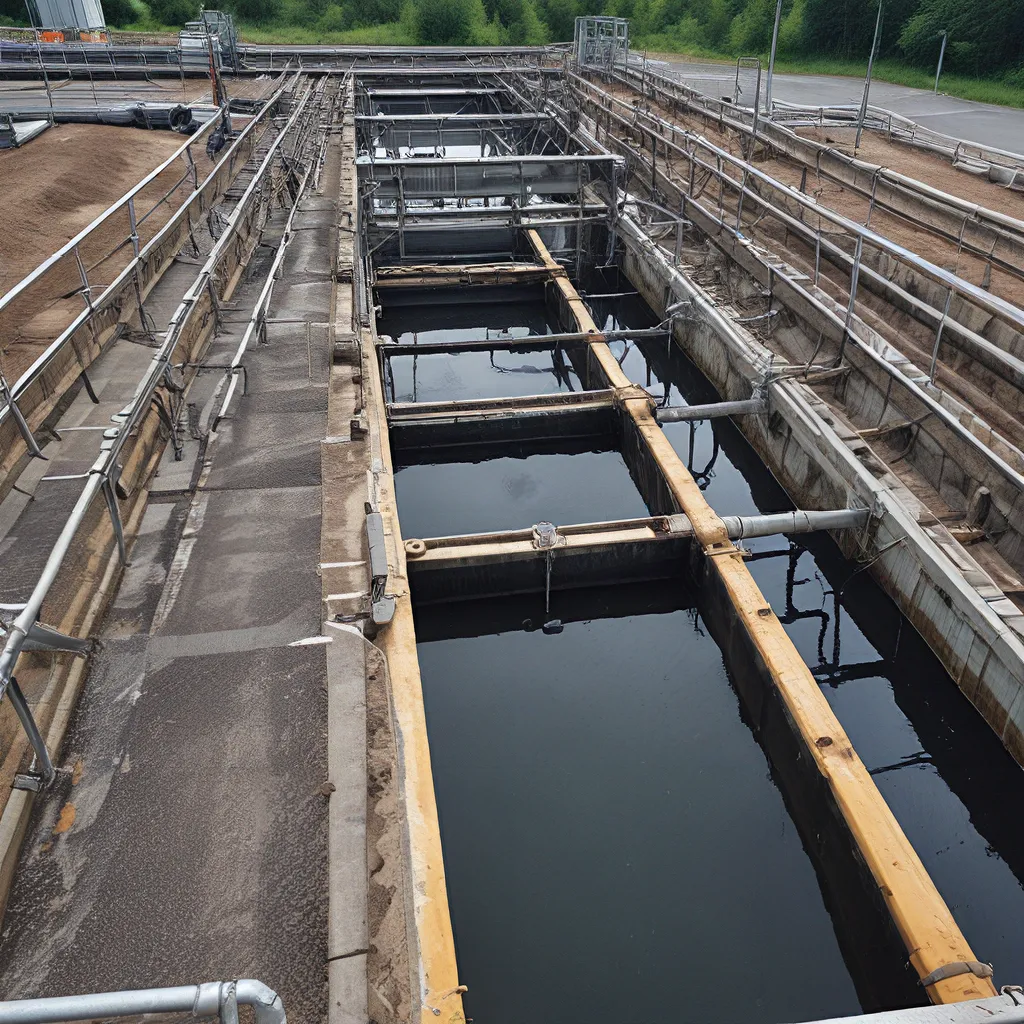
In the ever-evolving world of wastewater management, a new frontier has emerged – the seamless integration of Artificial Intelligence (AI) and cutting-edge technology. As an environmental enthusiast and someone who’s passionate about sustainability, I’ve been closely following the advancements in this field, and let me tell you, the future looks positively electrifying.
Unlocking the Power of AI in Wastewater Treatment
You know, when I first heard about using AI for wastewater treatment, I’ll admit, I was a bit skeptical. I mean, isn’t wastewater treatment all about good old-fashioned elbow grease and tried-and-true methods? Well, let me tell you, that notion couldn’t be further from the truth. AI has the potential to revolutionize the entire wastewater treatment industry, and the evidence is mounting.
Recent studies have shown that AI-powered systems can optimize treatment processes, improve efficiency, and even reduce operational costs – all while maintaining the highest standards of environmental protection. It’s like having a crystal ball for your wastewater plant, allowing you to anticipate and preempt any issues before they even arise.
Imagine being able to predict the optimal dosage of chemicals needed for efficient treatment, or identify potential equipment failures before they happen. That’s the power of AI, my friends. And the best part? It’s not just a pipe dream – it’s a reality that’s already being implemented in cutting-edge wastewater treatment facilities around the world.
Enhancing Process Optimization with AI
One of the key ways AI is transforming wastewater treatment is through process optimization. By analyzing vast amounts of data from sensors and historical records, AI-powered systems can identify patterns, detect anomalies, and make real-time adjustments to optimize the treatment process.
Experts suggest that this type of intelligent automation can lead to significant reductions in energy consumption, chemical usage, and operational costs – all without compromising the quality of the treated wastewater. It’s a win-win situation for both the environment and the bottom line.
Just imagine a wastewater treatment plant that can automatically adjust its processes based on changes in influent composition, weather conditions, or seasonal variations. That’s the kind of smart, adaptive system that AI can deliver. And the best part? It’s not just a pipe dream – it’s a reality that’s already being implemented in cutting-edge wastewater treatment facilities around the world.
Harnessing the Power of AI-Driven Predictive Analytics
But the benefits of AI in wastewater treatment don’t stop there. Predictive analytics is another area where AI is truly shining. By analyzing historical data and running sophisticated simulations, AI-powered systems can forecast future trends, predict equipment failures, and identify optimal maintenance schedules.
Recent research suggests that this type of proactive, data-driven decision-making can lead to improved asset management, reduced downtime, and even extended equipment lifespan. It’s like having a crystal ball for your wastewater plant, allowing you to anticipate and preempt any issues before they even arise.
Just imagine a world where your wastewater treatment facility can automatically schedule maintenance based on predicted wear and tear, or adjust chemical dosing to account for anticipated changes in influent composition. That’s the kind of smart, adaptive system that AI can deliver. And the best part? It’s not just a pipe dream – it’s a reality that’s already being implemented in cutting-edge wastewater treatment facilities around the world.
The Future of Wastewater Treatment: A Symbiotic Relationship with AI
As we look to the future, it’s clear that the relationship between wastewater treatment and AI is only going to grow stronger. Artificial Intelligence has the potential to transform every aspect of the wastewater management process, from process optimization and predictive maintenance to real-time decision-making and enhanced regulatory compliance.
And the best part? This isn’t just some distant, futuristic vision – it’s a reality that’s already taking shape in cutting-edge wastewater treatment facilities around the world. Take, for example, the Alpha Wastewater Treatment Services, who are at the forefront of this AI-driven revolution. They’re using advanced analytics, machine learning, and predictive modeling to optimize their treatment processes, enhance operational efficiency, and reduce their environmental impact.
But this is just the beginning. As AI-driven technologies continue to evolve and become more sophisticated, I can only imagine the incredible innovations and breakthroughs that we’ll see in the years to come. Maybe one day, we’ll have self-cleaning, self-monitoring wastewater treatment plants that can adapt to changing conditions and operate with minimal human intervention.
The possibilities are truly limitless, my friends. And I, for one, can’t wait to see what the future holds. So, if you’re a wastewater treatment professional looking to stay ahead of the curve, or if you’re just a curious environmental enthusiast like myself, I encourage you to keep a close eye on this rapidly evolving field. The future of wastewater management is here, and it’s powered by Artificial Intelligence.